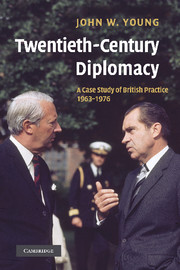Book contents
1 - Introduction
Published online by Cambridge University Press: 30 June 2009
Summary
Even though I have never seen the King,
I know whether he is a sage or a fool
When I read his letter or I meet his envoy.
from ‘The Hare Bluffs the Elephant’, part of the Pancatantra, an Indian book of folk wisdomThe ancient Indians talked of kings holding a ‘triple power’ of physical strength in money and arms, the knowledge that comes from good counsel and intelligence, and endeavour, by which they meant bravery and effort. But they were also well aware of the significance of diplomacy for dealing with enemies. In the Pancatantra, the king of the hares drives away a herd of elephants, not by threatening force, but by sending an experienced negotiator, Vijaya, to persuade them to leave. The tale, though short, contains a number of insights into the best way of conducting diplomacy. These include the importance of speaking with care, being succinct and adhering to instructions, if diplomatic missions are to be successful: ‘For an envoy can build an alliance, so also can he split allies apart.’ The tale also underlines the wisdom of rulers respecting the inviolability of envoys if diplomacy is to function: ‘Envoys only repeat what they have been told. Kings must not kill them.’ The modern world may be much more complex, with the rights of embassies now enshrined in the 1961 Vienna Convention, but the same basic truths remain.
- Type
- Chapter
- Information
- Twentieth-Century DiplomacyA Case Study of British Practice, 1963–1976, pp. 1 - 10Publisher: Cambridge University PressPrint publication year: 2008



